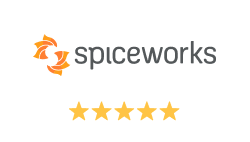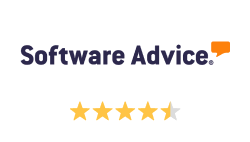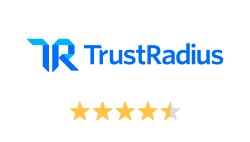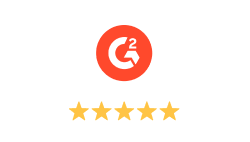This shift toward a cloud-based model shows that MSPs are becoming more focused on remote services, which will make MSP solutions such as RMM tools increasingly important in the coming years.
So, what effect will this remote monitoring and management software have for MSPs? How will MSPs benefit from remote monitoring and management? Here’s a look at how an RMM can improve MSP profitability.
7 Ways to Improve Profitability for Your MSP with RMM
Effectively Scale Your MSP
Your MSP is a business like any other, and businesses need to be able to grow and expand over time. However, this might be difficult for an MSP due to the intensity and complexity of the services you provide. For instance, if you are a product vendor, you simply need to deliver this product and then remain on hand to provide support — but for an MSP, you need to deliver a comprehensive service on an ongoing basis.
This makes scaling difficult. You need to make sure that the clients you bring in represent opportunities for growth rather than financial risk. With remote monitoring and management, it becomes easier to support clients and implement services even as your customer roster grows. Your business will be able to achieve seamless expansion without increased risk.
Reduce Resource Overstretching
Even without adding to your client roster, you still need to be aware of the resources you are using to support your existing customers. In particular, you need to be aware of how much capital you are using to deliver your services, as well as the time, resource, and personnel requirements.
Adopting RMM reduces resource reliance across all of these areas. Automated monitoring and alerts ensure that round-the-clock manual monitoring is not required — the system will take care of this for you so your human team members can focus on tasks more suitable for their skills. In turn, this reduces the amount of time you need to devote to monitoring and management, as manual inputs and insight will only be required when the team is alerted by the system. Not only does this save your business money in terms of salaried working hours, but it also eliminates errors and downtime that can result from manual monitoring.
Understand Your Existing Customers and Revenue Streams
It’s important to understand your clients and your revenue streams if you are to optimize your MSP business for success in the modern marketplace. Unfortunately, all customers are not equal — some customers will be highly lucrative, while other customers represent less value and may even result in a loss for your business.
RMM provides customer data that you can use to audit your client rosters. With effective auditing, you will be able to plan your time and resource allocation more effectively. By minimizing spending in certain areas and optimizing it in others, you will be able to reduce losses associated with less valuable clients.
Continuous Monitoring for Comprehensive Results
Monitoring needs to do more than provide low-level insight and assessment. A managed service provider needs to be able to achieve full peace of mind for their clients around the clock — the kind of peace of mind that comes from knowing everything is being taken care of. This means implementing continuous monitoring for critical events and extending this monitoring to assess the status of events as they unfold.
Again, this is not possible if you are relying on manual monitoring processes. With automated RMM features supporting you within your MSP, you will be able to guarantee this continuous monitoring in the long term. You’ll also be able to extend monitoring capabilities to include offline endpoints and hardware changes, as well as antivirus scanning and updating — all of these aspects are crucial if you are to achieve complete insight into the entire client ecosystem.
Read Also:
Leveraging Monetary Gains from RMM
Up to now, this article has examined how RMM for MSP solutions can save your company money, allowing you to provide high-quality managed services while achieving cost-effectiveness in the long term. This is important — after all, costs need to be controlled — but how can RMM actively increase your revenue?
One way to achieve this is to adjust your business model a little. Many MSPs utilize an hourly billing structure, charging clients for a specific time period of service delivered. With RMM, the model is a little different. Thanks to automated features, you will find that you are able to carry out patching and testing much more quickly and efficiently than before, and paradoxically receive less money from your clients as a reward.
You shouldn’t be losing out simply because you have achieved a more efficient way of running your MSP. Instead, you may decide to price your services according to the results you provide. Remember that your clients don’t simply want you to be working hard and putting in the hours — they want you to be providing a service that keeps their business’s system fully protected and performing well. Your pricing model needs to reflect this.
Improve Full Lifecycle Revenue
The service level agreements you have with your clients do not need to be static. Instead, they can evolve over time as you develop strong relationships with your customers. You may find that your customers change their minds over time, becoming increasingly engaged with your services and growing interested in upgrading their agreement with you.
This is another way in which RMM can actively build revenue for your company. With RMM on your side, you can guarantee a more reliable set of managed services for customers — something that will, in turn, foster a positive relationship between these customers and your business. With a high level of trust, you will be able to successfully pitch new services to your customers — services that will prove mutually beneficial, both for your client’s businesses and your revenue stream.
Achieve RMM Monetization with White Labeling
For MSPs, RMM solutions can inject an unprecedented level of flexibility into the business model. By reducing labor costs and achieving comprehensive liability from monitoring and management, your business will be able to offer white label products to customers, further diversifying your revenue streams and shoring up your business as it grows.
With white label products, your clients will essentially sell your services as their own. As the MSP, you are still providing an ongoing service to your customers, but these customers are passing on the benefits of this service to their own customers, perhaps as part of their own managed services model. You will be able to increase your MSP profit margins by charging more for this licensing capability.
This is another way in which RMM can actively build revenue for your company. With RMM on your side, you can guarantee a more reliable set of managed services for customers — something that will, in turn, foster a positive relationship between these customers and your business. With a high level of trust, you will be able to successfully pitch new services to your customers — services that will prove mutually beneficial, both for your client’s businesses and your revenue stream.
Target Better Profitability for Your MSP with RMM Solutions from Action1
Improve cost-effectiveness for your MSP by taking care of both ends of your business — reducing costs and driving revenue growth. Take a test drive of Action1’s endpoint management solution for MSP today, or reach out to the team and discover more about how our endpoint management software can revolutionize your MSP growth strategy.
Request a personalized demo to learn more about the platform, or sign up for a free version and use Action1 on 200 endpoints forever with no functionality limitations.
RMM for MSP: Frequently Asked Questions
What is RMM?
What is RMM definition? RMM stands for remote monitoring and management. This is the concept of monitoring and managing an IT system from an external location, usually not on the same site. Cloud monitoring and management solution’s agents are installed on managed endpoints and then operated from a centralized remote dashboard of IT administrator.




